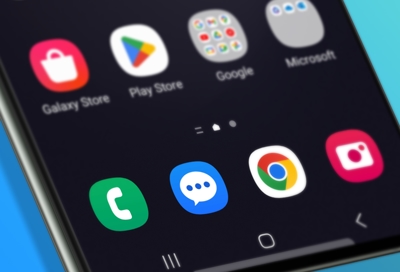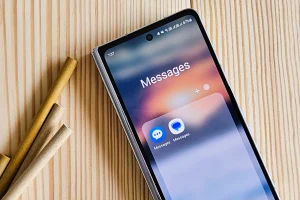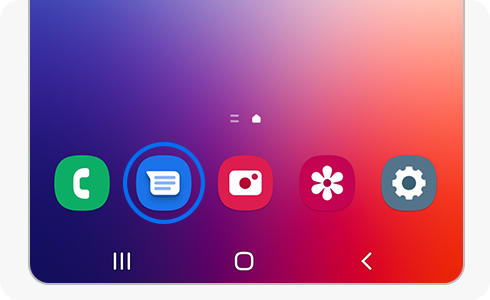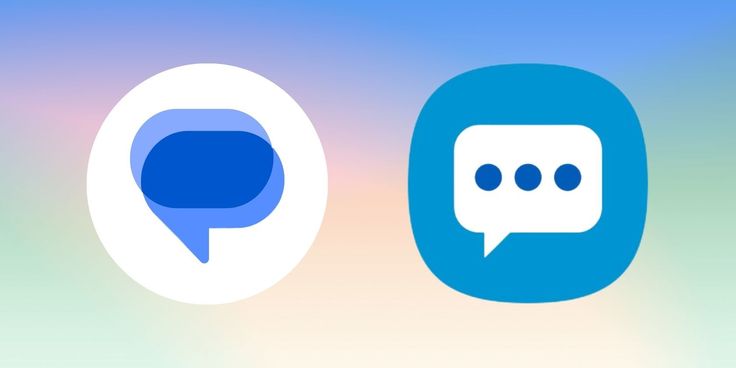In the world of smartphones, messaging apps play a crucial role in how we communicate daily. Among the plethora of options available, Google Messages and Samsung Messages stand out as two of the most prominent messaging apps for Android users. Both apps come pre-installed on many devices and offer a range of features tailored to enhance your messaging experience. But which one should you use? In this blog, we’ll dive into a detailed comparison of Google Messages and Samsung Messages to help you decide which app is best suited for your needs.
User Interface and Design
Google Messages
Google Messages boasts a clean, minimalist design that aligns with Google’s Material Design principles. The app’s interface is straightforward and easy to navigate, with a focus on simplicity. The use of white space and intuitive icons makes the app visually appealing and user-friendly. Conversations are neatly organized, and the app supports dark mode, which is gentle on the eyes and saves battery life on OLED screens.
Samsung Messages
Samsung Messages, on the other hand, integrates seamlessly with Samsung’s One UI, offering a more feature-rich design. The app’s interface is consistent with other Samsung apps, providing a familiar experience for Samsung device users. It offers more customization options compared to Google Messages, such as themes and font adjustments. The layout is slightly busier but packed with features that many users find beneficial.

Features and Functionality
Google Messages
1. Rich Communication Services (RCS): Google Messages is a strong advocate of RCS, which provides enhanced messaging features like read receipts, typing indicators, and high-resolution media sharing. RCS aims to bring a richer experience similar to that of popular instant messaging apps.
2. Integration with Google Services: The app integrates seamlessly with other Google services, such as Google Photos for easy media sharing and Google Assistant for smart replies and suggestions.
3. Spam Protection: Google Messages includes built-in spam protection to filter out unwanted messages, which enhances security and user experience.
4. Cross-Device Syncing: With the web version of Google Messages, users can send and receive messages from their computer, making it convenient for those who work across multiple devices.
Samsung Messages
1. Rich Communication Services (RCS): Like Google Messages, Samsung Messages also supports RCS, offering a similar set of advanced messaging features.
2. Samsung Ecosystem Integration: Samsung Messages integrates well with other Samsung devices and services, such as Samsung SmartThings, Samsung Cloud, and Galaxy Wearables. This makes it a great choice for users deeply invested in the Samsung ecosystem.
3. Customization Options: Samsung Messages offers extensive customization options, allowing users to personalize their messaging experience with different themes, bubble styles, and background images.
4. Advanced Features: Samsung Messages includes advanced features like message scheduling, which allows users to send messages at a later time, and priority senders, which keeps important contacts at the top of your list.

Performance and Reliability
Google Messages
Google Messages is known for its reliability and smooth performance. It receives regular updates directly from Google, ensuring that users always have access to the latest features and security patches. The app is optimized to work well across various Android devices, offering a consistent experience.
Samsung Messages
Samsung Messages also performs reliably, particularly on Samsung devices where it is deeply integrated into the system. The app is optimized for Samsung’s hardware, ensuring smooth performance. However, it may not receive updates as frequently as Google Messages, as updates are tied to Samsung’s broader software update schedule.
Compatibility and Availability
Google Messages
Google Messages is available for all Android devices and can be downloaded from the Google Play Store. Its broad compatibility makes it an excellent choice for users who may switch between different Android devices.
Samsung Messages
Samsung Messages comes pre-installed on Samsung devices and is optimized for the Samsung ecosystem. While it can be downloaded on other Android devices, it’s best suited for Samsung smartphones and tablets, where it offers the most features and integration.

Privacy and Security
Google Messages
Google Messages encrypts messages in transit, and with the recent addition of end-to-end encryption for one-on-one RCS chats, it provides a high level of security for users. Google also emphasizes privacy, with robust spam protection and minimal data collection.
Samsung Messages
Samsung Messages also offers secure messaging features, including encryption for RCS messages. Samsung’s Knox security framework provides additional layers of protection for users’ data, ensuring that messages are safe from prying eyes.
Also Read: How to Stop Facebook Ads: A Full Comprehensive Guide
Conclusion: Which Should You Choose?
The choice between Google Messages and Samsung Messages ultimately depends on your specific needs and preferences.
Choose Google Messages if:
- You prioritize a clean, minimalist design.
- You want the latest updates and features directly from Google.
- You use multiple Android devices and need cross-device syncing.
- You value integration with Google services and robust spam protection.
Choose Samsung Messages if:
- You are deeply invested in the Samsung ecosystem.
- You prefer extensive customization options.
- You use advanced features like message scheduling and priority senders.
- You appreciate the integration with Samsung’s hardware and services.

Both apps offer excellent features and performance, making them top choices for Android users. By understanding the strengths and unique features of each app, you can make an informed decision that best suits your messaging needs.

